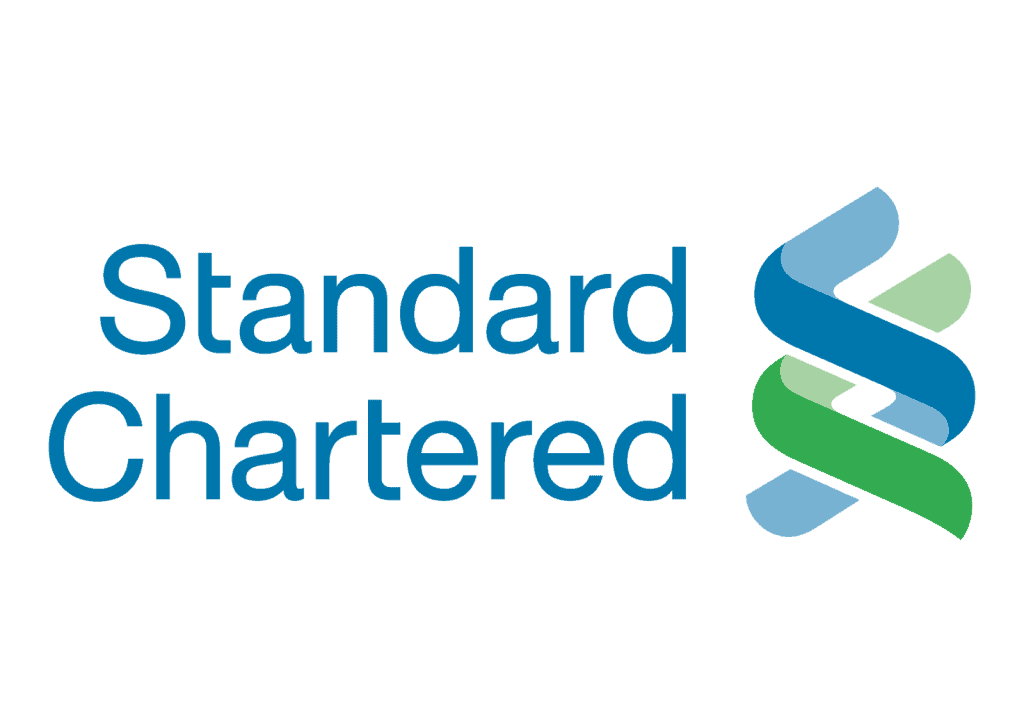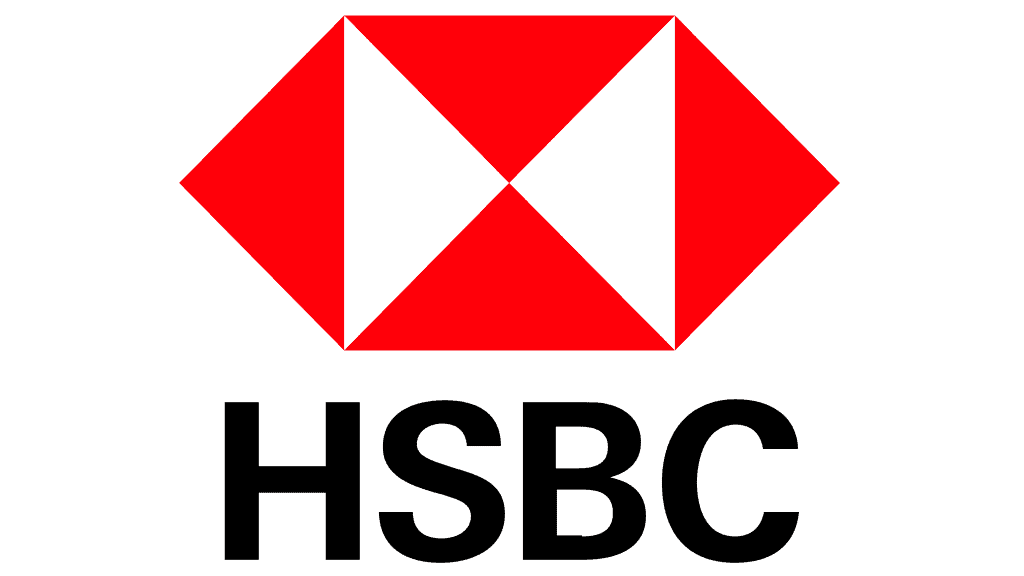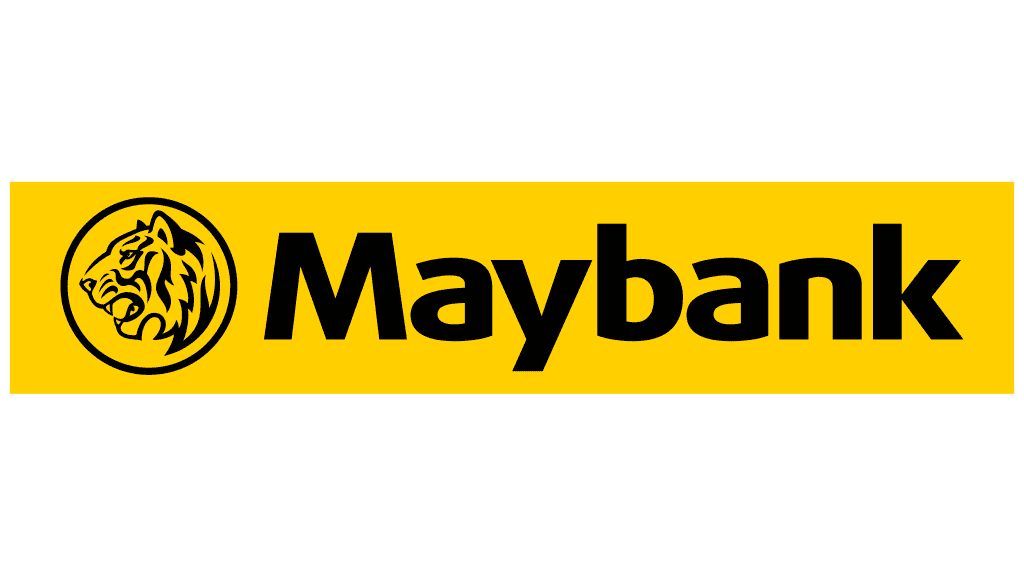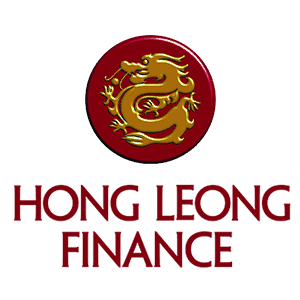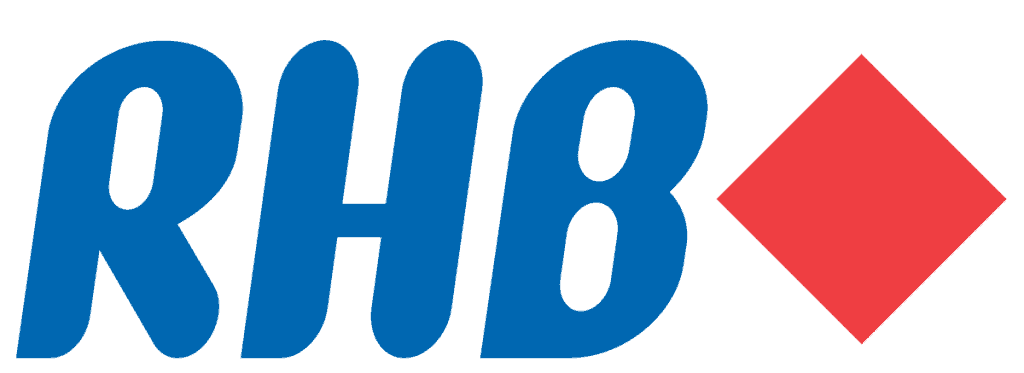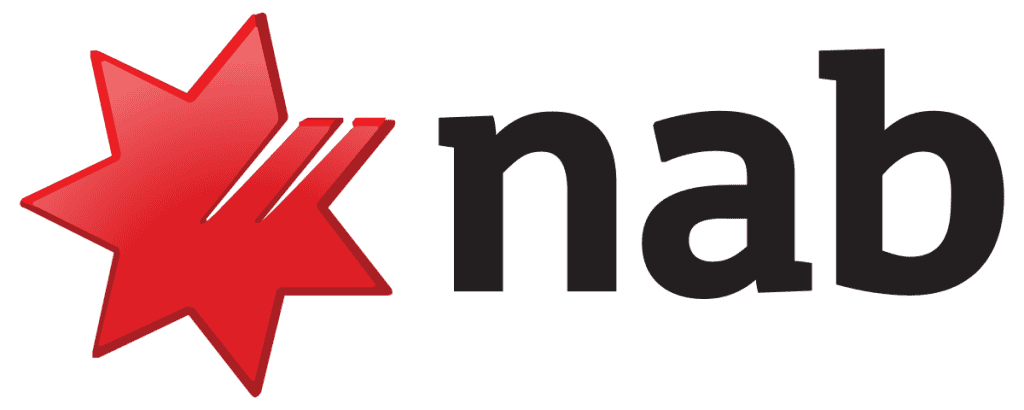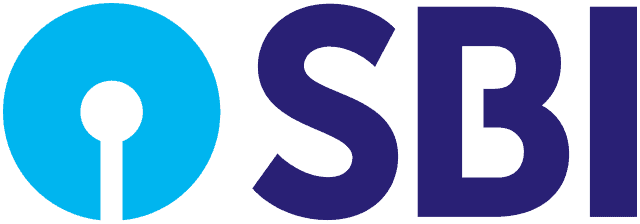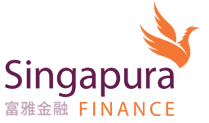Free Mortgage Advice for Your Needs
At Ace Mortgage Advisory, we simplify your home loan process by offering expert mortgage advisory and up-to-date comparisons of the lowest housing loan interest rates in Singapore.
Whether you’re purchasing your dream home or refinancing for better savings, we ensure you maximize your benefits with exclusive cash rewards, vouchers, and competitive rates.
Compare Across Major Banks
Compare rates from DBS, OCBC, UOB, HSBC, and more — all in one place for your convenience.
Unbiased Comparison
We don’t favor any bank. Our goal is to help you secure the most competitive mortgage rates available.
Save Mortgage Interest
Access exclusive rates, save on interest, and reduce legal fees for better long-term financial outcomes.
Fast, Hassle-Free Application
Get in-principle approval within hours. We streamline your application to make the process smooth and simple.
Personalized Advice
Our mortgage advisors recommend loans based on your unique goals, financial profile, and property plans — for free.
Mortgage Specialists
Avoid costly mistakes. Our experts guide you through every step, from application to approval, with clarity and care.
Find the Best Mortgage Loan Rates Here
Latest home loan mortgage rates Singapore updated monthly by our team.
.
Are you looking for a Private Property or HDB Flats? Click on the relevant tab to view rates.
-
PRIVATE PROPERTY (CONDO/LANDED)
-
HDB FLATS (RESALE/BTO)
Best Fixed Mortgage Rates for a Resale Condo or Landed Home (January 2026)
| LOAN TYPE | Year 1 | Year 2 | |
|---|---|---|---|
| Promo | 2 Yr Fixed | 1.40% | 1.40% |
| SCB | 2 Yr Fixed | 1.45% | 1.45% |
| HSBC | 2 Yr Fixed | 1.48% | 1.48% |
| DBS | 3 Yr Fixed | 1.48% | 1.48% |
| OCBC | 2 Yr Fixed | 1.50% | 1.50% |
Looking for the most competitive property loan rates in Singapore? The table above showcases the latest Singapore home loan fixed rate packages available for resale condos and landed homes, updated for April 2025. Whether you’re a first-time homebuyer or planning to refinance your existing mortgage, choosing the right fixed-rate plan is a strategic way to lock in predictable repayments — especially in today’s shifting Singapore housing interest rate landscape.
Fixed-rate mortgages remain a top choice for borrowers seeking short-term security and insulation from market fluctuations. With lock-in periods typically ranging from 2 to 5 years, these packages provide stability and peace of mind while allowing you to plan your finances with confidence.
However, finding the best loan mortgage rates isn’t just about spotting the lowest headline figure. It’s about understanding the full picture — from legal subsidies and cash rebates to exit clauses, repricing options, and post-lock-in flexibility. That’s where working with a seasoned mortgage advisor makes all the difference.
At Ace Mortgage, our expert mortgage brokers in Singapore go far beyond what’s listed in a rate table. We guide you through a full comparison process, taking into account your financial profile, CPF usage, property goals, and risk appetite. We also evaluate:
Lock-in duration and early repayment penalties
Bank-specific promotions and legal subsidies
Flexibility to reprice or refinance during or after the lock-in period
Total loan cost, not just the interest rate
Our deep relationships with more than 20 local and international lenders allow us to give you real-time insights and personalised guidance. Whether you’re looking to compare mortgage rates Singapore across top banks or secure the lowest housing loan rate for your budget, we help you structure a mortgage plan that truly works for your long-term goals.
With so many options in the market, navigating the world of Singapore home loan fixed rate offers can feel overwhelming. Let us simplify it for you — with expert, bank-neutral advice at no cost.
📌 Enquire now to compare the best mortgage loan rates in Singapore and get your personalised assessment started today.
Best Floating Mortgage Rates for a Resale Condo or Landed Home (January 2026)
| BANK | LOAN TYPE | Year 1 | Year 2 |
|---|---|---|---|
| Promo | 1M SORA | +0.25% | +0.25% |
| SCB | 1M SORA | +0.25% | +0.25% |
| HSBC | 1M SORA | +0.25% | +0.25% |
| DBS | 3M SORA | +0.28% | +0.28% |
| BOC | 3M SORA | +0.40% | +0.40% |
Considering a floating rate mortgage for your resale condo or landed home? The table above outlines the most competitive spreads over 3M SORA and FHR6 benchmarks from top banks.
These floating packages are designed to offer flexibility and potentially lower initial repayments, making them an appealing choice for certain property owners.
Unlike fixed rates, floating rates fluctuate with market conditions. This means while you may benefit from short-term savings, there’s also risk tied to movements in SORA and other rate benchmarks. That’s why selecting the right Singapore home loan involves more than just comparing the headline spread — it requires a holistic strategy.
At Ace Mortgage, we help you make informed decisions by offering comprehensive mortgage rates comparison Singapore. We look at more than just numbers — our mortgage advisors assess lock-in periods, repricing options, CPF usage, and long-term suitability for your financial profile and goals.
For many clients, floating loans are a powerful short-term option — especially in situations where:
You’re planning to sell the property within a few years
You expect interest rates to trend downward
You want flexibility to refinance without high penalties
You prefer a shorter lock-in period to stay agile
However, if you’re comparing against fixed housing loan rates, our team can help you weigh both paths objectively. The ideal approach often depends on your appetite for risk, your exit timeline, and how much certainty you need in your monthly repayments.
With market volatility and rising inflation, securing the best home loan rate isn’t just about interest savings — it’s about building financial resilience. Whether you’re buying or refinancing, our brokers will help you identify the most suitable package with competitive interest for home loan repayments and smart long-term flexibility.
By working with over 16 local and international lenders, we ensure your floating rate loan is not only low — it’s the right fit. No guesswork, no pressure, just clarity.
📌 Get in touch now for a tailored Singapore home loan consultation — and explore the top floating rates with a bank-neutral expert on your side.
Comparison of Major Private Property Loan Banks in Singapore (January 2026)
| Feature | DBS Bank | OCBC Bank | UOB Bank | HSBC Singapore | Maybank |
|---|---|---|---|---|---|
| Fixed Rate Packages | Competitive, popular for stability | Competitive, slightly higher rates | Moderate, strong hybrid options | Premium packages for high-value loans | Attractive rates for standard loans |
| Floating Rate Packages (3M SORA) | Transparent and clean spreads | Transparent, Eco-Care floating available | Slightly higher spreads | Premium SORA packages with flexibility | Lower spreads for select borrowers |
| Hybrid Loan Option | ✅ Two-In-One fixed-floating loan | ❌ Not available | ❌ Not available | ✅ SmartMortgage hybrid packages | ❌ Not available |
| Digital Application Tools | MyHome Planner for eligibility and affordability | OCBC OneAdvisor instant approvals | Instant valuation and approval tools | HSBC Mortgage Connect platform | Digital submission, manual approvals |
| Eco-Friendly Incentives | ❌ None | ✅ Eco-Care Home Loan | ✅ Go Green Home Loan | ✅ Sustainability-linked loans | ❌ None |
| Repricing Flexibility | 1x free repricing in some packages | Free switch after 1 year | Flexible repricing depending on package | Repricing fees may apply | Free repricing in many packages |
In today’s market, fixed-rate private property mortgage loans in Singapore typically range from 2 to 5 years, with 2-year and 3-year fixed mortgage packages being the most popular among homeowners. These offer a balance between short-term interest rate stability and long-term flexibility, helping borrowers minimise overall interest costs while locking in peace of mind.
While Maybank and Standard Chartered are currently offering some of the best house mortgage rates, other major lenders such as DBS, OCBC, UOB, and HSBC also feature attractive fixed-rate home loan packages. Each bank brings its own strengths — from promotional perks and shorter lock-in periods to relationship-based pricing and refinancing incentives. For example, DBS and UOB often promote limited-time fixed deals, while OCBC and HSBC cater to clients with tailored solutions and flexible pricing structures.
When it comes to floating home loans mortgage rates for private properties, lenders like Maybank, Standard Chartered, and DBS are especially competitive. Their packages are typically pegged to the 3M SORA benchmark and come with shorter lock-in periods — often just 1 to 2 years — which can be a strategic advantage in a rising rate environment. This gives borrowers the ability to refinance quickly if market conditions change.
At Ace Mortgage, our experienced consultants provide expert Singapore mortgage rate comparisons, helping you analyse not just rates, but total loan cost, flexibility, and refinancing options. We work with over 20 leading banks to help you secure the best housing loan in Singapore, tailored to your property type, financial profile, and long-term goals.
Whether you’re buying a resale condo, landed home, or refinancing your existing loan, we’ll guide you toward the lowest mortgage rates — with zero fees, full transparency, and bank-neutral advice.
📌 Enquire now for a full loan assessment and find the most suitable mortgage loan Singapore package for your private property.
Best Fixed Mortgage Rates for Private Property Refinancing (January 2026)
| BANK | LOAN TYPE | Year 1 | Year 2 |
|---|---|---|---|
| Promo | 2 Yr Fixed | 1.40% | 1.40% |
| SCB | 2 Yr Fixed | 1.45% | 1.45% |
| DBS | 2 Yr Fixed | 1.48% | 1.48% |
| DBS | 3 Yr Fixed | 1.50% | 1.50% |
| OCBC | 2 Yr Fixed | 1.50% | 1.50% |
Thinking of refinancing your private property? The table above features the most competitive fixed-rate mortgages currently available for refinancing, sourced from the top banks in Singapore.
Refinancing remains one of the smartest ways to lower your house interest rate Singapore, reduce your monthly instalments, and unlock more cash flow for savings or investment. But not all refinancing packages are created equal — and choosing the wrong one can cost you more in the long run.
At Ace Mortgage, we take the guesswork out of the process. Our expert advisors provide full home loan Singapore comparison services that go far beyond rate tables. We assess your current loan, property goals, and risk appetite to recommend the most suitable package from over 20 banks and lenders.
We don’t just compare current mortgage interest rates — we look at:
Lock-in periods and early repayment penalties
Legal subsidies and cash rebates
Flexibility to reprice or refinance in the future
CPF usage, TDSR/MSR limits, and tenure optimisation
The total cost of borrowing, not just the interest rate
If you’re considering switching from a floating-rate mortgage to a fixed-rate plan, we’ll walk you through the pros and cons of each — ensuring your loan is aligned with both short-term rate conditions and long-term financial security.
Our strong relationships with mortgage lenders with lowest interest rates allow us to access exclusive offers not typically available to the public. That’s how we help you secure the best mortgage loan Singapore — personalised, transparent, and completely free.
📌 Ready to refinance? Connect with us today and get a tailored recommendation based on the best home loan Singapore comparison — and start saving with the right mortgage for you.
Best Floating Mortgage Rates for Private Property Refinancing (January 2026)
| BANK | LOAN TYPE | Year 1 | Year 2 |
|---|---|---|---|
| Promo | 1M SORA | +0.25% | +0.25% |
| SCB | 1M SORA | +0.25% | +0.25% |
| DBS | 3M SORA | +0.25% | +0.28% |
| BOC | 3M SORA | +0.40% | +0.40% |
Floating rate packages can be an excellent option for homeowners looking to refinance in a rising or stabilising interest rate environment. The table above highlights the latest floating-rate refinancing offers for private properties, pegged to 3M SORA or FHR6 benchmarks — complete with updated spreads from top banks in Singapore.
Refinancing into a floating mortgage loan in Singapore allows you to take advantage of potentially lower initial repayments, shorter lock-in periods, and greater flexibility to reprice or switch packages when interest rates shift. However, choosing the right loan requires more than comparing rates — it requires a full financial strategy.
At Ace Mortgage, our seasoned mortgage Singapore advisors take a holistic approach. We guide you through total cost comparisons, analyse refinancing savings, and evaluate loan features like subsidy clawbacks, lock-in terms, and penalty waivers — all to ensure you’re making the smartest decision for your financial goals.
Unlike current fixed mortgage rates, which offer stability, floating loans give you room to adapt — a major plus in a dynamic market. But they also demand careful planning, especially when tied to SORA, which can change every quarter. That’s why understanding the Singapore bank housing loan interest rate landscape is key before making a switch.
We work with more than 20 major banks to bring you real-time comparisons of home loans and mortgages, including hidden fees, promotional perks, and lender-specific benefits. Whether you’re refinancing to ease monthly cash flow or restructuring your Singapore mortgage loan to prepare for future upgrades, we ensure your new package supports your goals.
Our mission is to help you secure the Singapore best housing loan — not just the lowest rate, but the one that fits your repayment timeline, risk appetite, and property plans.
📌 Ready to refinance with clarity? Speak to our team for a custom home loan Singapore strategy — and explore the top floating-rate options designed for smart, forward-thinking homeowners.
📈 Compare Bank Refinancing Rates (January 2026)
| Bank | 2-Year Fixed Rate | Floating (3M SORA + Spread) | Estimated Floating Rate |
|---|---|---|---|
| Maybank | 1.48% p.a. | 3M SORA + 0.25% | ~1.64% p.a. |
| HSBC Singapore | 1.48% p.a. | 3M SORA + 0.25% | ~1.64% p.a. |
| OCBC Bank | 1.50% p.a. | 3M SORA + 0.25% | ~1.64% p.a. |
| DBS Bank | 1.50% p.a. | 3M SORA + 0.28% | ~1.67% p.a. |
If you’re planning to refinance your private property, now is a strategic time to reassess your mortgage and secure a better deal. With the home loan interest rate landscape still above historical norms, many savvy homeowners are locking in short-term stability through 2- or 3-year fixed rate mortgage Singapore packages — especially those that allow flexibility in the years ahead.
Several leading banks in Singapore — including DBS, OCBC, UOB, HSBC, and Bank of China — are currently offering competitive fixed rate refinancing packages. These plans are ideal for homeowners with a lower risk appetite, looking for predictability in repayments while retaining the ability to pivot later. They also appeal to borrowers aiming to avoid potential volatility in floating rates over the next few years.
Some of the best home loan options come with built-in flexibility, such as free repricing within the lock-in period. This means you can switch to a new package if market conditions improve — without incurring penalties. For instance, Bank of China offers such features in their refinancing plans, along with perks like full penalty waivers if you sell the property before the loan is fully repaid.
Refinancing is also a great way to transition into the cheapest loans available today, especially if your current interest rate was locked in during a higher-rate period. But the ideal package isn’t just about chasing the lowest number — it’s about aligning the loan with your future plans, whether you intend to hold, sell, or restructure in the short to medium term.
At Ace Mortgage, we simplify the process with expert, unbiased guidance and a full Singapore home loan rates comparison across more than 20 banks. We help you evaluate not just rates, but total costs, subsidies, flexibility, and exit clauses — ensuring you secure the best home loan for your refinancing goals.
📌 Ready to refinance? Speak to us today to find the lowest home loan interest rate and the cheapest refinancing loan tailored to your needs.
Enquire now to get refinancing loan assessment with lowest mortgage rates.
Best Mortgage Rates for a BUC Condo (January 2026)
| BANK | LOAN TYPE | Year 1 |
|---|---|---|
| Promo | 3M SORA | +0.25% |
| DBS | 3M SORA | +0.25% |
| SCB | 3M SORA | +0.25% |
| DBS | FHR6 | +0.95% |
Planning to finance a new launch condo in Singapore? The table above highlights the most updated floating-rate packages for Building Under Construction (BUC) properties, pegged to 3M SORA or FHR6 benchmarks — accurate as of April 2025.
Securing the right house loan interest rate at the BUC stage is critical. Since disbursements are made progressively as construction milestones are reached, your mortgage for loan structure must be flexible enough to adapt over time — without exposing you to future rate shocks.
At Ace Mortgage, we specialise in helping buyers lock in favourable spreads early, avoid hidden rate traps, and structure a smart long-term financing plan. Our experts track the bank mortgages rates across all major lenders and offer real-time insights to help you choose the most cost-effective strategy.
Choosing a mortgage during the BUC phase isn’t just about initial savings — it’s about long-term adaptability. With partial servicing over the construction period, it’s easy to overlook how the package you choose today affects future repayments after TOP. That’s why it’s vital to compare mortgage rates thoroughly and understand the nuances.
We help you evaluate both floating and home loan fixed interest rates, and guide you toward the lowest interest rate mortgage loan that balances flexibility with financial stability. Whether you plan to hold, rent, or refinance post-completion, we’ll match you with packages that offer:
Low spreads over benchmark rates
Free repricing or package switching options
Partial disbursement-friendly terms
Exit flexibility for early sale or upgrade
Long-term suitability for your investment horizon
With over 20 bank partners, we make it easy to compare loans home options and secure the best Singapore mortgage rates for your BUC condo — without sales pressure, hidden fees, or wasted time.
📌 Let us help you find the best home mortgage rates — tailored to your timeline, your risk appetite, and your goals.
Best Mortgage Rates for a BUC Condo (January 2026)
| BANK | LOAN TYPE | Year 1 |
|---|---|---|
| Promo | 3M SORA | +0.25% |
| DBS | 3M SORA | +0.25% |
| SCB | 3M SORA | +0.25% |
| DBS | FHR6 | +0.95% |
Choosing the right housing loan for a Building Under Construction (BUC) condo in Singapore requires more than just chasing the lowest number on a rate sheet. Because these properties follow a progressive payment schedule, your loan is disbursed in stages — making the structure, flexibility, and future adaptability of your mortgage just as important as the housing interest rate itself.
Among today’s lenders, DBS currently stands out with one of the Singapore best mortgage rates for BUC buyers, especially those looking for floating packages with built-in flexibility. A key highlight? DBS allows borrowers to switch their rate of interest home loan package up to two times — from the first disbursement through to six months after Temporary Occupation Permit (TOP). This flexibility can be a game changer if market conditions change and a fixed rate of interest home loan becomes more attractive in the future.
Another standout benefit from DBS is the waiver of early repayment penalties on any undisbursed loan amounts — a rare offering. This is particularly valuable if you’re an investor or owner planning to sell the property soon after key collection. Without this feature, sellers often face penalties on the unreleased loan portion, which can cost thousands.
But DBS isn’t your only option. Banks like UOB, OCBC, Standard Chartered, and HSBC also offer highly competitive floating-rate BUC packages, each with its own advantages. Whether it’s lower bank spreads, shorter lock-ins, or flexible repricing options, a proper mortgage loans comparison is essential before locking anything in.
At Ace Mortgage, we help you go beyond surface-level mortgage rates currently advertised. We take a 360-degree approach — evaluating bank house loan interest rate terms, total cost of borrowing, subsidy clawbacks, and refinancing potential. Our experts provide a detailed home loan rates Singapore comparison so you can select a package that’s built around your life stage, risk appetite, and exit strategy.
Whether you’re seeking cheap mortgages with short-term gains or long-term stability with the lowest rate of interest home loan, we’ve got the tools and insights to help you decide. With access to over 20 major lenders and up-to-date data on updated home loan interest rates, we’ll help you lock in a financing plan that grows with your property.
📌 Ready to make your move? Contact us for a personalised plan — and unlock the best mortgage loan Singapore options for your new launch condo.
Progressive Payment Schedule for a New Launch Condominium in Singapore
| Stage of Payment | Percentage of Purchase Price | Notes |
|---|---|---|
| Option to Purchase (OTP) Fee | 5% (Cash) | Payable upon booking the unit. |
| Upon Signing the Sale & Purchase Agreement (S&PA) (Within 8 weeks of OTP) | 15% (Cash or CPF) | This completes the downpayment, totaling 20% of the purchase price. |
| Completion of Foundation Work | 5% (Cash or CPF to fulfil 75% LTV) + 5% | Payment due upon completion of foundation. |
| Completion of Reinforced Concrete Framework | 10% | Payment due when the structural framework is completed. |
| Completion of Partition Walls | 5% | Payment due upon completion of partition walls. |
| Completion of Roofing/Ceiling | 5% | Payment due when roofing/ceiling is completed. |
| Completion of Door and Window Frames, Electrical Wiring, Internal Plastering, and Plumbing | 5% | Payment due upon completion of these installations. |
| Completion of Car Parks, Roads, and Drains | 5% | Payment due when these external works are completed. |
| Upon Receipt of Temporary Occupation Permit (TOP) | 25% | At this stage, the property is typically ready for occupancy. |
| Upon Receipt of Certificate of Statutory Completion (CSC) | 15% | Final payment upon full completion and certification of the property. |
| Total | 100% |
Buying a Building Under Construction (BUC) property in Singapore means navigating a unique financing structure called the progressive payment schedule. Instead of paying the full amount upfront, you pay in stages as your property hits construction milestones. This directly impacts how your mortgage loan interest in Singapore is disbursed — and why choosing the right loan structure is so important.
Each construction phase — from the 5% Option to Purchase (OTP) to the final 25% upon Temporary Occupation Permit (TOP) — activates a partial loan disbursement. That’s why selecting a loan with flexibility, competitive rates, and the right lock-in terms is key. Your Singapore home loan interest will accumulate gradually, and managing that with the wrong package can significantly increase your overall cost.
At Ace Mortgage, we specialise in helping buyers secure the best housing loan rate Singapore offers for BUC condos. Whether you’re looking for stability with home loan fixed rates Singapore or prefer the flexibility of floating packages, we conduct a full mortgage rates Singapore comparison tailored to your financial goals and timeline.
We work with over 20 lenders to find you the cheapest home loan in Singapore, not just based on headline numbers, but by factoring in:
Legal fee subsidies and promotional perks
Lock-in durations and exit penalties
Refinancing options post-TOP
Repricing flexibility and rate switches
Total cost of borrowing, not just the bank loan interest rates Singapore publishes
With interest mortgage rates fluctuating in 2025 and beyond, our role is to future-proof your loan — not just for today’s rate, but for tomorrow’s changes. Our advisors make it easy to identify good mortgage rates, avoid hidden fees, and structure a loan that fits your CPF usage, investment strategy, and exit timeline.
By combining expert guidance and real-time data, we help you lock in the lowest home loan interest rates available — and secure a deal that works from your first disbursement to the day you get your keys.
📌 Contact us today to explore your options and lock in the Singapore property loan interest rate that supports your homeownership journey — with zero cost, full transparency, and expert support at every step.
Current SORA Rates Today (January 2026)
| Compounded SORA Tenor | Rate |
|---|---|
| 1-Month Compounded SORA | 1.14% |
| 3-Month Compounded SORA | 1.24% |
The Singapore Overnight Rate Average (SORA) is now the primary benchmark for pricing most floating-rate home loans in Singapore. The table above shows the latest compounded SORA rates as of April 2025 — a crucial reference point for anyone planning to take up or refinance a mortgage tied to a floating structure.
With the 3-month compounded SORA sitting at 2.55%, borrowers must factor in the bank’s spread added on top of this base rate. This spread varies between lenders, meaning your effective home loan with interest can differ significantly depending on the package you choose. That’s why it’s essential to compare home loan rates across banks to secure the best rate for mortgage loan options available.
At Ace Mortgage, we help you go beyond numbers. Our team of expert mortgage consultants breaks down the real cost of borrowing — not just the bank loan rates Singapore advertises — but the fine print, the lock-ins, and the refinancing potential. Whether you’re after a floating package with flexibility or a Singapore fixed rate home loan for stability, we help you secure the best mortgage rates Singapore based on your unique financial goals.
Our deep lender network gives us access to promotional packages and exclusive offers not always shown publicly — helping you lock in:
A competitive house loan rate that fits your budget
The best housing loan terms with low upfront costs
A good mortgage rate based on your CPF usage and risk profile
Clarity on property loan interest trends for better long-term planning
The Singapore best home loan deal, structured around your timeline
With market volatility and current home loan interest rates always in flux, it’s more important than ever to make smart, informed decisions. Whether you’re buying, refinancing, or switching from fixed to floating, Ace Mortgage ensures you get transparent advice and the lowest rate of interest on housing loan offers available — all at no cost to you.
📌 Need help navigating floating rates? Let’s simplify it. Get expert insight on bank loan rates Singapore and find a package that grows with your home.
Best Fixed Mortgage Rates for a Resale HDB Flat (January 2026)
| BANK | LOAN TYPE | Year 1 | Year 2 |
|---|---|---|---|
| Promo | 2 Yr Fixed | 1.40% | 1.40% |
| Maybank | 2 Yr Fixed | 1.48% | 1.48% |
| DBS | 2 Yr Fixed | 1.48% | 1.48% |
| OCBC | 2 Yr Fixed | 1.50% | 1.50% |
Looking to finance a resale HDB flat? The table above showcases the latest fixed mortgage packages helping you lock in stable housing loan rates with no surprises over your repayment period.
Fixed-rate loans offer peace of mind, especially for first-time buyers or those planning long-term ownership. With promotional 2-year and 1+1-year fixed plans offering as low as 2.44%, now is a smart time to explore your options and secure the housing loan best interest rate available.
At Ace Mortgage, we specialise in helping you identify the best home loan Singapore has to offer — whether you value shorter lock-ins, legal subsidies, or flexibility for refinancing down the road. Through our comprehensive mortgage rates comparison, we compare packages across top banks such as DBS, OCBC, UOB, and more to match you with the loan structure that suits your budget and goals.
Why choose a fixed-rate HDB loan?
- Shield yourself from future rate hikes
- Simplify monthly budgeting with predictable instalments
- Tap into promotional bank offers and subsidies
- Ideal if you plan to stay long-term in your flat
Our expert advisors walk you through every step of your mortgage loan comparison Singapore journey — including CPF usage, MSR limits, and lock-in period nuances — so you make a fully informed decision.
With current mortgage rates influenced by global and local market trends, the key is to act when house loan low interest rates are available. Whether you’re comparing short- or mid-term packages, or looking for home loan rates best aligned with your income, we make it simple, transparent, and free.
We believe in pairing clients with tailored financing options that are built for now and ready for the future. Let us help you evaluate interest rates and mortgage rates side-by-side, and unlock better savings and flexibility — all without the stress of speaking to multiple banks on your own.
📌 Click below to speak to an advisor and get the best fixed-rate HDB housing loan recommendation today.
Best Floating Mortgage Rates for a Resale HDB Flat (January 2026)
| BANK | LOAN TYPE | Year 1 | Year 2 |
|---|---|---|---|
| Maybank | 1M SORA | +0.25% | +0.25% |
| SCB | 1M/3M SORA | +0.25% | +0.25% |
| RHB | 1M SORA | +0.28% | +0.28% |
Looking for a flexible mortgage option for your resale HDB flat? The table above highlights the most competitive floating rate home loan packages — updated to help you find the best mortgage loan in Singapore that balances cost, flexibility, and long-term value.
Floating mortgage loans are ideal for borrowers who expect mortgage and interest rates to remain stable or decrease over time. Pegged to benchmarks like the 3M SORA, CHR, and FHR6, these loans often start with a lower spread, offering some of the home loan best rates in the market today. For example, DBS currently offers spreads as low as +0.10% — a standout option for those who want to minimise monthly repayments early on.
At Ace Mortgage, we help you compare home loans from top lenders such as DBS, Maybank, OCBC, and UOB. Our advisors simplify the process with expert comparison home loan rates breakdowns — so you don’t have to chase every bank for updates. We analyse not just interest rates, but also lock-in periods, penalty clauses, refinancing flexibility, and property loan interest rates to find a solution that fits your lifestyle and financial goals.
Why consider floating-rate HDB loans?
Lower initial interest compared to fixed mortgage rates
Shorter lock-ins for easier refinancing
Ideal for CPF cashflow planning and early resale strategies
Good choice if you’re expecting rates to stay flat or fall
With rising property prices and uncertain global trends, getting a low interest rate mortgage loan is more important than ever. Whether you’re a first-time buyer or looking to refinance, our goal is to connect you to the cheapest mortgage loan in Singapore — without compromising on terms or flexibility.
📌 Speak to us today and discover how to lock in the most competitive HDB floating loan available. We’ll help you make smarter choices when it’s time to compare home loans — all at zero cost.
Fixed vs Floating Rate HDB Home Loans: A Quick Comparison
| Feature | 🏠 Fixed Rate Loan | 🌊 Floating Rate Loan |
|---|---|---|
| Stability | ✅ High – Monthly payments remain constant | ❌ Variable – Changes with market rates (e.g. SORA) |
| Rate Predictability | ✅ Locked in for 2–5 years | ❌ Subject to fluctuations every 1–3 months |
| Best for | Buyers who value stability over potential savings | Borrowers seeking to benefit from potential rate drops |
| Example Rates | ~3.00–3.30% (2 or 3-year fixed) | ~2.85–3.10% (3M SORA or FHR-based) |
| Lock-in Period | Typically 2 years | 1–2 years (some offer no lock-in after initial period) |
| Flexibility | ❌ Repricing possible only after lock-in | ✅ Often allows repricing or switching after 1 year |
| Penalty on Sale | ✅ Waivers may apply, depending on bank | ✅ Waivers may apply on unreleased loan (e.g. BUC sale) |
| Best Banks (Currently) | DBS, UOB, OCBC, Maybank | DBS (FHR), Standard Chartered, OCBC, HSBC |
| Ideal Loan Size | Any size – especially stable for <$500k loans | Larger loans (>$600k) benefit more from floating rates |
When purchasing an HDB flat—especially a resale unit with a 5-year Minimum Occupation Period (MOP)—many homeowners prefer the stability of a fixed interest rate throughout this mandatory holding period, without overpaying in the current high-rate environment.
With interest rates nearing their highest point in nearly a decade, choosing a 2-year or 3-year fixed rate home loan offers peace of mind, while keeping your total borrowing costs manageable. Several banks, including DBS, OCBC, UOB, and Maybank, offer competitive fixed rate packages tailored for HDB purchases.
At the same time, for larger HDB loan amounts above $600,000, a floating rate home loan may be worth considering. In a declining interest rate environment, floating packages could provide significant interest savings, especially over the first few years. For example, DBS’s Fixed Deposit Home Rate (FHR) loan—pegged to a fixed deposit rate instead of the standard 3M SORA—offers a unique hedge against rate fluctuations and is attractive for certain borrower profiles.
Ultimately, choosing between a fixed or floating rate bank loan for HDB depends on your financial goals, risk appetite, and long-term property plans. Some homeowners may even benefit from hybrid loan structures or packages that offer repricing flexibility after a lock-in period.
At Ace Mortgage, our expert advisors compare real-time interest rates and promotions from all major banks to help you secure the best HDB housing loan—whether you’re buying your first BTO, upgrading to a resale flat, or considering refinancing. We stay up to date on monthly rate revisions and hidden perks to ensure you don’t just settle for what’s published online—but get a truly better deal.
Best Fixed Mortgage Rates for a HDB Refinancing (January 2026)
| BANK | LOAN TYPE | Year 1 | Year 2 |
|---|---|---|---|
| Promo | 2 Yr Fixed | 1.48% | 1.48% |
| Maybank | 3 Yr Fixed | 1.48% | 1.48% |
| DBS | 2 Yr Fixed | 1.48% | 1.48% |
| OCBC | 2 Yr Fixed | 1.50% | 1.50% |
Thinking about refinancing your HDB loan? The table above outlines the latest fixed home loan mortgage rates — providing a clear snapshot of the most competitive 2-year and 3-year fixed packages currently available from banks like DBS and Maybank.
With interest rates remaining above historical norms, locking in the best home mortgage loan rates can provide welcome stability in your monthly repayments. Fixed loans are especially useful if you’re risk-averse or planning to stay in your flat for several years. As shown, current offerings start from as low as 2.xx% — giving you access to some of the best rates for mortgage refinancing.
At Ace Mortgage, we help you navigate the complexities of housing loan interest Singapore options by comparing over 20 major lenders. Our advisors look beyond the rate to help you assess lock-in periods, repricing flexibility, legal fee subsidies, and hidden penalties — ensuring your refinancing plan fits both your lifestyle and long-term goals.
Why refinance your HDB loan with a fixed-rate mortgage?
Lock in stability with predictable monthly instalments
Avoid rate hikes tied to floating packages
Enjoy promotional rates with shorter commitments
Maximise CPF cash flow planning
Secure the lowest interest rates for property loans with expert help
We offer you a complete housing loan Singapore comparison, allowing you to compare home loan rates Singapore without the hassle of contacting every bank. Whether you’re seeking the lowest rates today mortgage or want to compare Singapore home loan packages for refinancing, we’ve got you covered — with unbiased, no-fee advice.
📌 Let us help you refinance smarter. Get matched to the most suitable package and lock in the best home mortgage loan rates for your HDB today.
Best Floating Mortgage Rates for a HDB Refinancing (January 2026)
| BANK | LOAN TYPE | Year 1 | Year 2 |
|---|---|---|---|
| Maybank | 1M SORA | +0.25% | +0.25% |
| SCB | 1M SORA | +0.25% | +0.25% |
| OCBC | 1M SORA | +0.25% | +0.25% |
| DBS | FHR6 | +0.28% | +0.28% |
Looking to refinance your HDB loan? Floating-rate packages may be your smartest option in 2025 — especially with spreads over 3M SORA and FHR6 offering competitive flexibility. The table above showcases some of the lowest home loan rates in Singapore, with DBS leading the pack with spreads as low as +0.10%.
In today’s landscape, where loan interest rate Singapore trends continue to evolve, floating loans allow you to ride the wave of market fluctuations while keeping your refinancing plan nimble. For those monitoring interest rates mortgage movements, choosing a floating option means potential savings over fixed packages — especially if rates dip.
What makes floating refinancing attractive for HDB owners?
Competitive spreads from top banks like DBS and Maybank
Shorter lock-in periods for easier repricing or refinancing
Flexibility to switch packages as property interest rate Singapore changes
Potentially lower repayments compared to fixed home loan rates
At Ace Mortgage, we help homeowners simplify the Singapore mortgage rates comparison process. Instead of going bank to bank, our consultants present the best home loan mortgage rates across more than 20 lenders — all in one place. Whether you’re focused on securing the best house loan, reducing long-term interest, or simply need a smooth refinance, we’re here to help.
✔ Compare real-time rates
✔ Analyse total loan costs
✔ Unlock the cheapest home loan Singapore
✔ Receive zero-cost, unbiased advisory
With mortgage fixed rates and floating benchmarks evolving monthly, now’s the time to make a move. Let us help you lock in one of the best home loans rates while aligning with your repayment goals and exit strategy.
📌 Get a personalised breakdown of the best options for you — start with a no-obligation consultation today.
Current Bank Loan Interest Rates for Resale HDB Flats (January 2026)
| Bank | Loan Package | Interest Rate (Year 1) | Lock-in Period | Notes |
|---|---|---|---|---|
| PROMO | 2-Year Fixed | 1.48% | 2 years | |
| Maybank | 2-Year Fixed | 1.48% | 2 years | |
| DBS | 2-Year Fixed | 1.48% | 2 years | |
| OCBC | 2-Year Fixed | 1.50% | 2 years | |
| RHB | 2-Year Fixed | 1.68% | 2 year |
If you’re financing a resale HDB flat, choosing the right mortgage can unlock substantial savings over time. While the standard HDB Concessionary Loan offers a stable rate of 2.6% per annum, many banks now provide more competitive alternatives with current fixed rate mortgage rates starting as low as 2.xx% (below 2.6%).
The table above presents a home loan rates comparison across top banks in Singapore, including DBS, OCBC, Standard Chartered, Maybank, and HSBC. These institutions offer fixed-rate packages with 1- to 2-year lock-ins, tailored to suit different borrower preferences. Notably, Standard Chartered currently leads with the lowest mortgage loan interest rates, for example at 2.42%, paired with perks like free package conversions.
When doing a home loan compare exercise, it’s important to go beyond interest percentages. Consider factors such as:
Monthly repayments
Lock-in period flexibility
Repricing or conversion options
Legal fee subsidies
Early repayment penalties
By evaluating the full package, you’ll uncover the best housing loan rates aligned with your financial goals.
At Ace Mortgage, our experts specialise in simplifying the mortgage loan rates landscape. We help you compare the housing loan bank interest rates side-by-side and identify home loans at lowest interest rate levels based on your eligibility, credit profile, and repayment horizon.
Our advisors keep track of the current mortgage interest rates and provide personalised recommendations so you can avoid overpaying. Whether you’re a first-time buyer or refinancing, we help you secure the cheapest mortgage loan Singapore banks can offer—without hidden fees or mark-ups.
📉 Compare smarter. Save thousands.
🧾 Get expert help navigating mortgage interest Singapore updates.
📌 Lock in your rate with a trusted advisor—fast and free.
Click below to explore the best mortgage loan interest rates tailored to your HDB journey.
Should You Take an HDB Concessionary Loan or a Bank Loan for a Resale HDB Flat?
| Factor | 🏦 HDB Housing Loan | 🏛️ Bank Housing Loan |
|---|---|---|
| Interest Rate | Fixed at 2.6% p.a. (CPF OA + 0.1%) | Typically 2.1%–2.5% p.a. (fixed rate) |
| Loan-to-Value (LTV) | Up to 80-90% of property price or valuation | Up to 75% |
| Down Payment | 10-20% (Full CPF accepted) | 5% in cash + 20% CPF or cash |
| Flexibility | ✅ High – early repayment with no penalty | ❌ Early repayment may incur penalties (within lock-in) |
| Approval Criteria | More lenient – ideal for first-time buyers | Stricter – based on income, credit score, TDSR |
| Switching Option | ✅ Can switch to bank loan later | ❌ Cannot switch back to HDB loan once bank loan is chosen |
| Loan Tenure | Up to 65 years of age, max 25 years | Up to 75 years of age, max 30 years (subject to age) |
| Monthly Repayment | Slightly higher due to higher interest | Lower initially (if floating), but subject to rate changes |
| Repricing / Refinancing | ❌ Not applicable | ✅ Available – can reprice or refinance anytime |
| Ideal For | First-time buyers, stable income, CPF-heavy buyers | Buyers with strong financials, cash-rich profiles, or rate-savvy investors |
When buying a resale HDB flat, one of the most important financial decisions is choosing between the HDB Concessionary Loan and a Bank Housing Loan. Each option offers distinct advantages depending on your budget, repayment preferences, and long-term property strategy.
Fixed vs. Variable Rates: Understanding the Core Difference
The HDB Housing Loan offers a fixed interest rate of 2.6% p.a., providing stable repayments ideal for first-time buyers. In contrast, Bank Housing Loans typically range from 2.1% to 2.5% p.a. for fixed packages, making them more attractive in a mortgage rate comparison Singapore context—especially for those seeking cheap home loan interest rates and shorter lock-in periods.
With the bank mortgage interest rate often starting lower than HDB’s fixed 2.6%, borrowers with strong financial profiles can enjoy best interest rates home mortgage options. However, bank loans come with stricter approval criteria and early repayment penalties within the lock-in period.
Key Comparison Points:
Loan-to-Value (LTV): HDB loans offer up to 90%, while banks usually cap at 75%.
Down Payment: HDB loans allow full CPF usage. Bank loans require 5% in cash.
Flexibility: HDB allows early repayment with no penalty. Bank loans offer repricing and refinancing options for long-term interest optimization.
Loan Tenure: Banks allow repayment up to age 75 (vs. 65 for HDB), giving greater flexibility.
Switching Options: HDB borrowers can move to bank loans later, but not vice versa.
Who Should Choose What?
HDB loans are best for first-time buyers with CPF-heavy finances looking for stability. Bank loans are ideal for those who prefer fixed mortgage rates Singapore with lower monthly repayments, or want to take advantage of home loan latest interest rate promotions and house mortgage rates.
If you’re aiming to maximise long-term savings and can meet the stricter bank criteria, a bank loan could offer the best interest rates home mortgage deals with potential for future repricing. But if you prioritise lenient approval, stable repayments, and full CPF usage, the HDB loan remains a solid choice.
💡 Want expert advice tailored to your profile?
Let our consultants at Ace Mortgage guide you through a personalised mortgage rate comparison Singapore session—comparing housing loan interest in Singapore across all major banks and advising you on the best interest rates home mortgage fit for your financial goals.
Choosing between an HDB Concessionary Loan and a Bank Loan is one of the most important financial decisions you’ll make when buying your Build-To-Order (BTO) flat in Singapore.
Each loan type has its pros and cons, but for many first-time buyers, the HDB loan offers greater peace of mind, flexibility, and lower upfront cash requirements — making it a strong choice, especially during uncertain economic conditions.
🔍 HDB Loan vs Bank Loan for HDB BTO Flats – A Comparison
| Factor | 🏦 HDB Concessionary Loan | 🏛️ Bank Housing Loan |
|---|---|---|
| Interest Rate | Fixed at 2.6% p.a. (pegged at CPF OA + 0.1%) | Varies; typically lower than HDB rates but subject to market fluctuations |
| Loan-to-Value (LTV) | Up to 75% | Up to 75% |
| Down Payment | 25% (can be fully paid using CPF savings; no cash required) | 5% cash + 20% (can be paid using CPF savings or cash) |
| Maximum Loan Tenure | Up to 25 years | Up to 30 years for HDB flats |
| Penalty for Early Repayment | ❌ None | ✅ Possible (within lock-in period) |
| Eligibility Criteria | Must be a Singapore Citizen; income ceiling applies | Open to Singapore Citizens, PRs, and Foreigners; no income ceiling |
| Switching Option | ✅ Can switch to bank loan later | ❌ Cannot switch back to HDB loan once bank loan is chosen |
📌 Key Takeaways:
The HDB loan is more forgiving, especially for young couples and first-time buyers who may not yet have strong cash flow or credit profiles.
The bank loan can offer lower interest costs over time — but it comes with more complexity, and repayments begin much earlier.
You cannot switch from a bank loan to an HDB loan later, but you can switch from an HDB loan to a bank loan.

Compare Housing Loans Packages in Singapore
Compare housing loan packages in Singapore to find the best rates, lowest fees, and most flexible terms. A thorough home loan comparison helps you save thousands in interest, choose the right bank, and secure a mortgage that suits your financial goals—whether for HDB, private, or refinancing purposes.
- Save thousands in interest payments by securing the lowest rates
- Enjoy greater flexibility by choosing a loan package tailored to your property and financial goals
- Get impartial, expert advice on bank loan packages
- Hassle-free application process with a dedicated mortgage specialist
Housing Loan for Private Properties (Condos & Landed Homes)
Buying a private property in Singapore? Whether it's a condo or landed home, choosing the right housing loan is key to maximising savings and affordability. We help you compare mortgage interest rate Singapore, understand loan options, and make informed decisions tailored to your financial goals—so you can own your dream home with confidence.
- Compare fixed vs floating interest rates for condos and landed homes
- Understand key loan criteria and TDSR limits for private properties
- Explore exclusive mortgage packages from leading banks
- We can help you get home loans using pledge funds or show-cash method


Housing Loan for HDB BTO or Resale Flats
Looking to finance your HDB flat? Whether you're a first-time buyer or refinancing, understanding your house loan options is crucial. We guide you through HDB vs bank loans, explain eligibility and CPF usage, and help you compare the best HDB loan rates—so you can choose the right loan with confidence.
- Compare HDB loan vs bank loan to find the best fit
- Learn HDB financing rules, MSR, CPF usage, and eligibility criteria
- Access the lowest HDB loan interest rates from top banks
- Receive expert, unbiased advice tailored to your HDB purchase or refinance

Get Expert Mortgage Advice, Tailored to You
Let our experienced consultants guide you to the lowest rates and best home loan package — whether you’re buying, refinancing, or planning ahead.
All You Need to Know About Mortgage Loans
-
 Property Type
Property Type
-
 Loan Amount
Loan Amount
-
 Income
Income
-
 CPF Usage
CPF Usage
-
 Fixed vs Floating
Fixed vs Floating
-
 Lock-In Period
Lock-In Period
-
 Loan Tenure
Loan Tenure
-
 Penalties
Penalties
Types of Properties in Singapore & How They Affect Your Home Loan
Singapore offers a diverse range of property types, each with unique financing criteria and loan structures. Knowing the differences helps determine the right mortgage for your needs.
🏠 HDB Resale Flat
These are government-subsidised homes sold on the open market. Buyers can choose between an HDB concessionary loan (subject to eligibility) or a bank loan (both up to 75% LTV). MSR (Mortgage Servicing Ratio) of 30% and TDSR (Total Debt Servicing Ratio) of 55% apply.
🧱 HDB BTO Flat
Build-To-Order flats are new public housing booked directly from HDB. Similar to HDB Resale flats, buyers can choose between HDB concessionary loan or bank loan. An option fee of $500-$2,000 is payable upon booking the flat. For signing the lease agreement, a downpayment of 10-20% of the purchase price is payable. Finally, upon key collection, the remaining downpayment of 5-15% is payable. MSR and TDSR apply.
🏘️Executive Condominiums (ECs)
Executive Condominiums (ECs) are a hybrid between public and private housing, developed and sold by private developers but regulated by HDB for the first 10 years. Buyers can only use bank loans (no HDB concessionary loan is allowed). EC purchases follow the progressive payment scheme (like private condos under construction). MSR and TDSR both apply.
🏙️ New Launch Condominium
Private condos under construction follow the progressive payment scheme. Only floating rates are available during construction. TDSR applies (no MSR). LTV is capped at 75%.
🏢 Resale Condominium
Completed private properties purchased from current owners. Both fixed and floating rate loans are available. TDSR applies. LTV capped at 75%.
🏡 Landed Property
Includes terrace, semi-Ds, and bungalows. Higher purchase prices and unique structural elements make these more complex. TDSR applies. LTV capped at 75%.
🏬 Commercial Property
Includes shophouses and offices. These require commercial mortgage loans with lower or higher LTVs (~60-90%) and higher interest rates. TDSR and other commercial criteria apply.
💰 Understanding Your Maximum Loan Amount in Singapore
Before shopping for your dream home, it’s crucial to know how much the bank is willing to lend you. This is known as your maximum loan amount, and it’s determined by a few key regulatory frameworks in Singapore: Loan-to-Value (LTV), Total Debt Servicing Ratio (TDSR), and Mortgage Servicing Ratio (MSR).
Let’s break each one down so you can plan your property purchase wisely.
🧮 1. Loan-to-Value (LTV) Ratio – How Much Can You Borrow?
The LTV ratio determines how much of the property price a bank can finance.
| Loan Details | LTV Limit |
|---|---|
| No existing housing loans | Up to 75% |
| 1 existing housing loan | Up to 45% |
| 2 or more existing housing loans | Up to 35% |
| Buyer Age + Remaining Tenure > 65 | 55% LTV or Lower |
| Remaining Tenure < 30 years | 55% LTV or Lower |
Example:
Buying a $1,000,000 condo with no existing home loans = max loan of $750,000 (75%).
Important:
- The remaining 25% is your downpayment:
- At least 5% must be in cash
- The rest (20%) can be CPF or cash
💼 2. Total Debt Servicing Ratio (TDSR) – Can You Afford the Monthly Repayments?
TDSR limits your total monthly debt (including home loan, car loans, credit cards, etc.) to 55% of your gross monthly income.
Formula:
(Total Monthly Debt Obligations ÷ Gross Monthly Income) ≤ 55%
Example:
If your gross income is $8,000/month, max debt servicing = $4,400/month
This figure must cover:
- Your new home loan
- Car instalments
- Personal loans
- Credit card balances
📌 TDSR applies to all private properties, commercial properties, and HDB flats financed via bank loans.
🏠 3. Mortgage Servicing Ratio (MSR) – For HDB & EC Properties Only
If you’re buying an HDB flat (BTO or resale) or an Executive Condominium, the MSR also applies.
- MSR caps your monthly mortgage repayment to 30% of your gross monthly income
- This is more restrictive than TDSR and is meant to ensure affordability of public housing
Example:
If you earn $6,000/month, your mortgage instalment must be ≤ $1,800/month under MSR.
💼 Understanding Income Assessment & Income Ceilings
When applying for a home loan, your income plays a central role in determining how much you can borrow. While most people focus on interest rates and property prices, your income structure (and how the bank calculates it) can make or break your mortgage eligibility.
Let’s explore how income is assessed, what “income ceiling” means, and what you can do if your income doesn’t qualify.
🔍 What is an Income Ceiling?
The term “income ceiling” generally refers to government-imposed income limits that affect eligibility for HDB loans or CPF housing grants — it does not apply to bank loans.
| Scheme | Monthly Household Income Ceiling |
|---|---|
| HDB Concessionary Loan | $14,000 (family) / $7,000 (single) |
| CPF Housing Grant (BTO/Resale) | $14,000 (family), varies by grant type |
| Bank Loans (any property type) | ❌ No ceiling, but subject to TDSR/MSR |
If your household income exceeds the HDB loan income ceiling, you’ll need to take a bank loan instead.
💡 How Banks Assess Your Income
For bank loans, income is assessed for affordability and risk using the Total Debt Servicing Ratio (TDSR) and, for HDB/ECs, the Mortgage Servicing Ratio (MSR).
Banks will assess your income based on type and consistency:
- Fixed Income (e.g. salaried employment)
- 100% of your gross monthly salary is considered.
- CPF contributions are used to verify consistency.
- Variable Income (e.g. commission, freelance, bonuses)
- Subject to a 30% haircut (only 70% is considered).
Example: If you earn $10,000/month in commissions, only $7,000/month is assessed.
- Requires 6–12 months of income history (e.g. payslips, Notice of Assessment)
- Self-Employed / Director Income
- Based on average income over 2 years
Documents: NOA, bank statements, company financials
💳 What If Your Income Is Not Enough?
If your income is insufficient to support your desired loan amount, you can:
✅ Add a Co-Borrower
- Combine income with a spouse, parent, or sibling to boost eligibility.
- Useful for joint property purchases.
✅ Pledge Funds
- “Park” a sum of money (e.g. $50k–$200k) in a fixed deposit with the bank for 2–4 years.
- Improves your loan profile without inflating your monthly income.
✅ Show Unpledged Funds
- Submit bank statements showing large cash savings or investments.
- Less effective than pledging but can still support your application.
✅ Extend Loan Tenure
- Reduces monthly repayments and improves TDSR compliance.
✅ Apply with Specialist Brokers (like Ace Mortgage)
- We know which banks are more flexible with income types and can match you accordingly.
🧠 Ace Mortgage Pro Tip:
Don’t assume your “monthly pay” equals your assessed income — especially if you have bonuses, commissions, or self-employed income. Our team can calculate your TDSR accurately before you apply and avoid unnecessary rejections.
CPF Usage for Home Loans in Singapore
Your CPF Ordinary Account (OA) funds can be a powerful tool in financing your property — but it’s important to understand how much you can use, and the long-term implications.
CPF Ordinary Account (OA) funds can be used for:
- Down payment
- Monthly instalments
- Legal fees and stamp duties
🏠 How Much CPF Can You Use?
For HDB Concessionary Loans, you can pay the downpayment fully using your CPF. However for bank loans, 5% of the purchase price must be in cash.
Do take note of the property’s Valuation Limit (VL) and Withdrawal Limit (WL), which may affect the total amount of CPF you can use for your downpayment and mortgage payments.
When buying an older leasehold hdb or private property, do take note that the remaining lease should cover you till age 95, or the amount of CPF that you can use will be reduced. This also means the older you are, it may affect your CPF usage, LTV and loan tenure allowed.
📌 Important Rule: CPF Refund Upon Sale
When selling, you must return used CPF plus accrued interest (~2.5% p.a.). This reduces your net cash proceeds.
For example, you used $120k of your CPF OA in 2005 for your flat, and sell your flat in 2025, you will need to return accrued interest to your CPF OA of the $120k + your OA’s interest %/year for the past 20 years, which may be something like $200k.
Therefore, use CPF wisely—reserving OA funds for retirement may be beneficial depending on your cash flow.
Fixed vs Floating Interest Rates – What Homeowners in Singapore Should Know
Choosing between a fixed or floating home loan interest rate can significantly affect your mortgage repayments and long-term financial stability. Here’s a comprehensive breakdown to help you decide what’s right for your needs.
🔒 What is a Fixed Interest Rate?
A fixed rate home loan offers an interest rate that remains unchanged for a specified lock-in period, usually 2 to 5 years.
✅ Pros:
- Predictable repayments — you know exactly what you’re paying monthly.
- Stability — protects you from rising interest rates during your lock-in.
- Good for budgeting — especially for new homeowners or families with tight cash flow.
❌ Cons:
- Less flexibility — you may incur penalties for refinancing during the lock-in period.
- Once the fixed rate period ends, the loan usually reverts to a higher floating rate (e.g., board rate or SORA + spread).
💹 What is a Floating Interest Rate?
A floating rate (also called variable rate) changes based on a market benchmark — usually SORA (Singapore Overnight Rate Average) — plus a bank-defined spread.
✅ Pros:
- More flexibility — many packages come with shorter lock-in periods or free repricing.
- Opportunity to refinance or switch if market conditions improve.
❌ Cons:
- Monthly repayments fluctuate — harder to budget long-term.
- Rates can increase — especially in a rising interest rate environment.
- Requires active monitoring of market trends.
📊 Fixed vs Floating Mortgage Interest Rate Comparison
| Feature | Fixed Rate | Floating Rate |
|---|---|---|
| Rate Stability | ✅ Locked for 2–5 years | ❌ Changes quarterly (e.g. 3M SORA) |
| Initial Interest | 🔺 Usually lower | 🔻 Slightly higher |
| Monthly Repayment | 🚫 No change during lock-in | 🔄 Can increase or decrease |
| Lock-In Period | 🔒 2 to 3 years typically | 🔓 Some with 1-year lock-in or none |
| Repricing Flexibility | ❌ Limited | ✅ Often includes free repricing |
| Suitable For | Risk-averse, stable income buyers | Rate-savvy or short-term owners |
🔀 What is a Hybrid Mortgage Package?
A hybrid home loan offers the best of both worlds by combining fixed and floating components. These packages may work in one of two ways:
- Staggered Fixed-to-Floating
- Fixed rate for the first 1–2 years
- Automatically switches to floating (e.g., SORA + spread) after the fixed period
- Great for buyers who want near-term stability and long-term flexibility
- Split Loan Structure
- Split into two loan parts, e.g.:
- 50% fixed
- 50% floating
- Useful for hedging — you get some protection from rate hikes while also enjoying possible floating rate dips
- Split into two loan parts, e.g.:
🧠 How to Decide?
- If you value stability and are planning to stay in the property long-term:
→ Consider a fixed rate loan. - If you believe interest rates will drop or remain low:
→ Consider a floating rate loan. - If you want some peace of mind and flexibility:
→ Consider a hybrid mortgage package.
💬 Ace Mortgage Tip: Some banks offer free conversions or repricing options after your lock-in ends. We help you negotiate for these benefits upfront — at no cost to you.
Understanding the Lock-In Period in Mortgage Loans
The lock-in period is one of the most overlooked but important factors when choosing a mortgage loan. It affects your flexibility, refinancing options, and potential penalties — and understanding it could save you thousands of dollars in the long run.
💡 What is a Lock-In Period?
A lock-in period refers to the minimum time (usually 1 to 3 years) that you must stay with your chosen bank or financial institution after taking up a home loan. If you refinance, fully redeem the loan, or sell your property during this period, the bank will typically charge an early repayment penalty, usually 1.5% of the redeemed loan amount.
📌 Why Do Banks Impose Lock-In Periods?
- To recover costs associated with setting up the mortgage (admin, legal, valuation, etc.)
- To retain you as a customer during the initial years
- Because fixed-rate loans are a “guarantee” for the borrower, banks offset the risk by requiring a lock-in
📊 Typical Lock-In Period by Loan Type
| Loan Type | Typical Lock-In Period | Penalty if Broken |
|---|---|---|
| Fixed Rate Loan | 2 to 3 years | ~1.5% of loan amount |
| Floating Rate (SORA) | 1 to 2 years | ~1.5% of loan amount |
| No Lock-In Packages | 0 years | None (but higher rates) |
⚠️ What Happens If You Break the Lock-In?
If you sell or refinance your property before the lock-in ends:
- You may pay a penalty of 1.5% of your outstanding loan.
- You may forfeit subsidies (e.g. legal fee reimbursements).
- Some banks may also charge clawback fees for subsidies if the loan is terminated prematurely.
💬 Example: If your outstanding loan is $500,000, a 1.5% penalty = $7,500.
🔓 Are There Any Exceptions?
Yes! Some banks allow waivers of the lock-in penalty, such as:
- Waiver upon sale of property (must be stated in the loan agreement)
- Partial repayment up to 50% without penalty
- Free conversion/repricing after the first year
Ace Mortgage can help you negotiate for these clauses when securing your loan.
🧠 Key Considerations Before Choosing a Lock-In Period
- Are you planning to sell the property within the next 2–3 years?
- If yes, consider shorter lock-in or waiver-on-sale packages.
- Do you expect interest rates to drop?
- You may want flexibility to refinance — so avoid long lock-in periods.
- Do you plan to make lump-sum repayments early?
- Look for packages that allow partial repayments without penalty.
Understanding Loan Tenure: How Long Should You Repay Your Home Loan?
When choosing a home loan, one of the most critical decisions you’ll make is your loan tenure — the number of years you’ll take to fully repay your mortgage. Loan tenure affects your monthly instalments, total interest paid, and your loan eligibility.
💡 What is Loan Tenure?
Loan tenure refers to the duration over which you agree to repay your mortgage loan. In Singapore, tenures typically range from 5 to 30 years, depending on your age, property type, and loan amount.
📋 MAS Guidelines & Maximum Loan Tenures in Singapore
| Property Type | Maximum Loan Tenure (Bank Loan) | Maximum Loan Tenure (HDB Loan) |
|---|---|---|
| HDB Flats (BTO/Resale) | 25 years | 30 years |
| Executive Condominiums | 30 years | Not eligible |
| Private Property (Condo/Landed) | 30 years | Not eligible |
| Commercial Property | Usually up to 25 years | Not eligible |
🧠 Note: If your age + loan tenure exceeds 65 years, MAS imposes stricter Loan-to-Value (LTV) and Total Debt Servicing Ratio (TDSR) limits.
📉 Loan Tenure vs Monthly Repayment: A Comparison Table
Loan Amount: $500,000 @ 3% p.a. interest| Tenure | Monthly Repayment | Total Interest Paid |
|---|---|---|
| 15 Years | ~$3,452 | ~$121,000 |
| 20 Years | ~$2,775 | ~$166,000 |
| 25 Years | ~$2,372 | ~$211,000 |
| 30 Years | ~$2,108 | ~$259,000 |
✅ Longer Tenure = Lower Monthly Instalment
❌ Longer Tenure = More Interest Paid Over Time
🧠 What Affects Your Eligible Loan Tenure?
- Your Age:
- Most banks require the loan to be repaid before age 65.
- Some banks allow up to age 75 with additional conditions (e.g. using joint borrowers or pledging assets).
- Loan Type:
- HDB loans allow longer tenure (30 years max) but have stricter MSR rules.
- Bank loans may offer more flexibility but are capped based on age and TDSR.
- Loan Structure:
- If you choose a loan tenure above 30 years or your age + tenure exceeds 65, your LTV may be reduced to 55%.
💬 Tips for Choosing the Right Loan Tenure
✅ Go for longer tenure if:
- You want lower monthly repayments for better cash flow
- You’re young and qualify for a full tenure
- You want the option to make early repayments later (many packages allow this without penalty)
✅ Go for shorter tenure if:
- You want to save on interest over the loan duration
- You have a stable, high income and can manage higher monthly payments
- You’re planning to pay off your mortgage early
🔁 Can I Change My Loan Tenure Later?
Yes — through:
- Repricing (with the same bank), or
- Refinancing (with a different bank)
You can renegotiate your loan terms, including tenure, depending on your age and outstanding balance. This can help you reduce monthly repayments or shorten your loan duration.
🔐 Pro Tip from Ace Mortgage:
When in doubt, opt for a longer tenure to keep your monthly commitments manageable. You can always make partial repayments along the way if your finances improve — but you can’t reduce tenure once you’ve locked in a shorter one.
⚠️ Understanding Penalties in Mortgage Loans: What Every Homeowner Should Know
When taking up a home loan, many borrowers focus on interest rates and tenure — but penalties are just as important. If you’re unaware of these hidden costs, you could easily incur thousands in unexpected charges when selling, refinancing, or making lump sum repayments.
💡 What Are Mortgage Penalties?
Mortgage penalties are fees imposed by the bank when you take certain actions before the end of your lock-in period or outside your loan’s agreed terms. They’re designed to protect the bank’s interest — but if you’re not careful, they can eat into your cash flow or sale proceeds.
🧾 Common Types of Mortgage Loan Penalties
| Penalty Type | Description |
|---|---|
| Early Redemption / Full Prepayment | Charged if you fully repay your loan before the lock-in period ends. Usually 1.5% of outstanding loan. |
| Partial Prepayment Penalty | Charged if you make a lump sum repayment exceeding the free limit. May be 0.75%–1.5%. |
| Sale Within Lock-In Period | Same as early redemption. Even if you sell your property, the bank may still charge 1.5%. |
| Cancellation Fee | If you cancel your loan before the first disbursement (e.g. project not completed), usually 0.75–1.5% of loan. |
| Clawback Fee | If the bank gave you subsidies (e.g. legal/valuation fees), they may “claw back” the amount if the loan ends early. |
💬 Real Example:
You sell your condo during the 2nd year of a 3-year lock-in period with a remaining loan of $600,000.
Penalty (1.5%) = $9,000, plus possible clawback of $2,000 legal subsidy.
That’s $11,000 in unexpected costs if you’re unprepared.
🛡️ How to Avoid or Minimize These Penalties
- Negotiate a Waiver on Sale Clause
- Many banks offer this: no penalty if you sell your property (not refinance).
- Ace Mortgage can help secure this on your behalf.
- Understand Your Partial Prepayment Allowance
- Some banks allow you to prepay up to 20% annually with no fee.
- Great for borrowers expecting bonuses or lump sums.
- Check for Free Repricing or Conversion Options
- Certain packages allow internal switching to a new rate after 1–2 years.
- Time Your Exit Wisely
- Plan to refinance or sell after the lock-in period ends to avoid fees.
- Review Your Subsidies Agreement
- If you received legal or valuation fee subsidies, understand the clawback period — often 3 years.
🔁 Common Scenarios Where Penalties Apply
| Scenario | Penalty Applies? | Workaround |
|---|---|---|
| Selling during lock-in | ✅ Yes | Negotiate “waiver on sale” clause |
| Refinancing before lock-in ends | ✅ Yes | Wait until lock-in ends, or pay penalty |
| Refinancing with same bank (repricing) | ❌ Often no | Ask about repricing options |
| Making a lump sum repayment | ✅ Maybe | Check if it exceeds annual free limit |
| Cancelling loan before disbursement | ✅ Yes | Commit only when sure about property purchase |
🧠 Ace Mortgage Pro Tip:
Many banks don’t highlight penalties unless you ask.
We help you review the fine print, negotiate waivers, and compare real total cost — not just the headline interest rate.
How to Apply for a Home Loan in Singapore
We'll Help Process Your Home Loan Application
1. Compare Mortgage Loan Packages
We compare mortgage interest rate singapore across all major banks to help you find the most suitable and cost-effective mortgage plan.
2. Apply for In-Principle Approval (IPA)
Get pre-approved quickly with our guidance so you know how much you can borrow before committing to a property.

3. Submit & Wait for Legal Process
We coordinate with your lawyer and bank to handle the paperwork, ensuring everything moves smoothly toward your property purchase.
4. Loan Disbursement
Upon completion, your bank disburses the loan and you're officially ready to collect your keys or refinanced your property.






Hi Ace Mortgage, thank you so much for helping us secure our BTO loan! Your explanation on CPF usage and MSR was super clear — really helped us feel confident signing the papers!

Alvin & Shermaine
First-timer Home Owners
Appreciate the fast response and honest advice. I compared 4 banks but your recommendation turned out to be the best fit for my needs. Zero fees and fuss-free!

Desmond Tay
IT Engineer
Honestly, I didn’t know where to start with refinancing, but you guys guided me through every step. Thank you for helping me save on interest!

Shermaine Goh
Housewife
感谢 Ace Mortgage 帮助我们办理公寓贷款!你们提供的比较明细让我们很容易就做出了决定。

王丽文
Chinese National (PR)
Was worried about my income structure, but Ace Mortgage helped me use the show funds method and explained everything patiently. Highly recommend!

Leslie Chen
Business Owner
We just got our IPA approved thanks to your guidance! The whole process was way smoother than we expected. Super thankful 🙏

Darren & Jerlyn
New Homeowners
Shoutout to Ace Mortgage for being so prompt and detailed. Explained lock-in periods and penalties clearly — now I finally understand what I’m signing!

Julian S.
Foreign Investor
Great experience working with your team. Transparent, responsive, and no sales pressure at all. Wouldn’t have gotten this deal directly with the bank

Mdm Tan
Teacher
Zero Fees. Smarter Mortgage Decisions.
Our service is 100% free. From finding the right home loan package to coordinating with your lawyer and bank, we guide you at every step — so you can save time, avoid costly mistakes, and make fully informed financial decisions.

Comprehensive Mortgage Advisory Services

Take up a housing loan with your preferred bank:
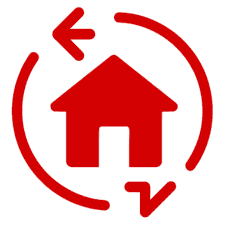
Refinance or New Property Loan for All Property Types:

Get Home Loan IPA & Calculate Affordability:
Join other homeowners
in Singapore
Get insider mortgage tips, exclusive rate updates, and smart property insights — straight to your inbox.




